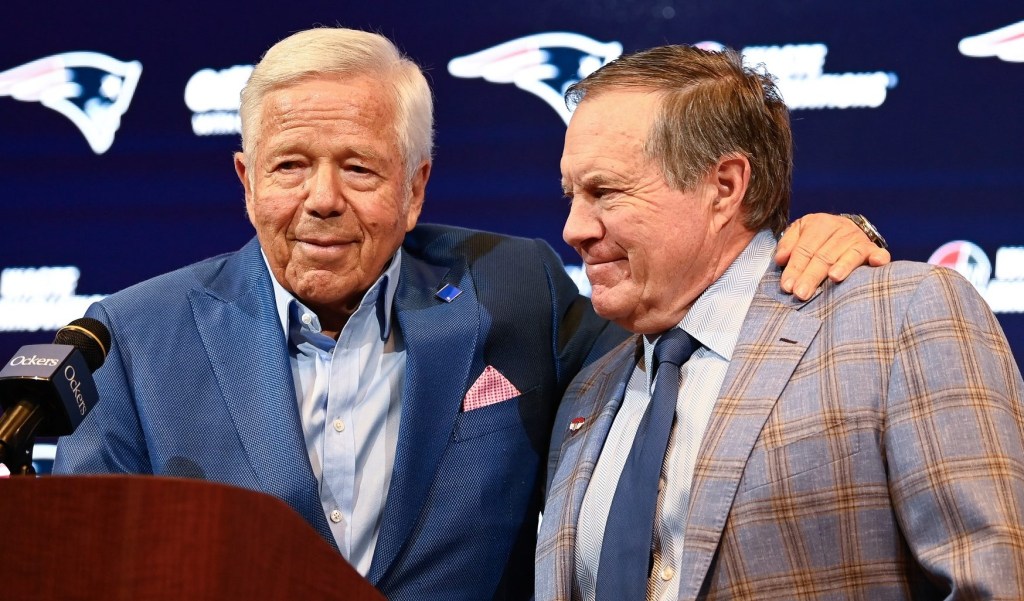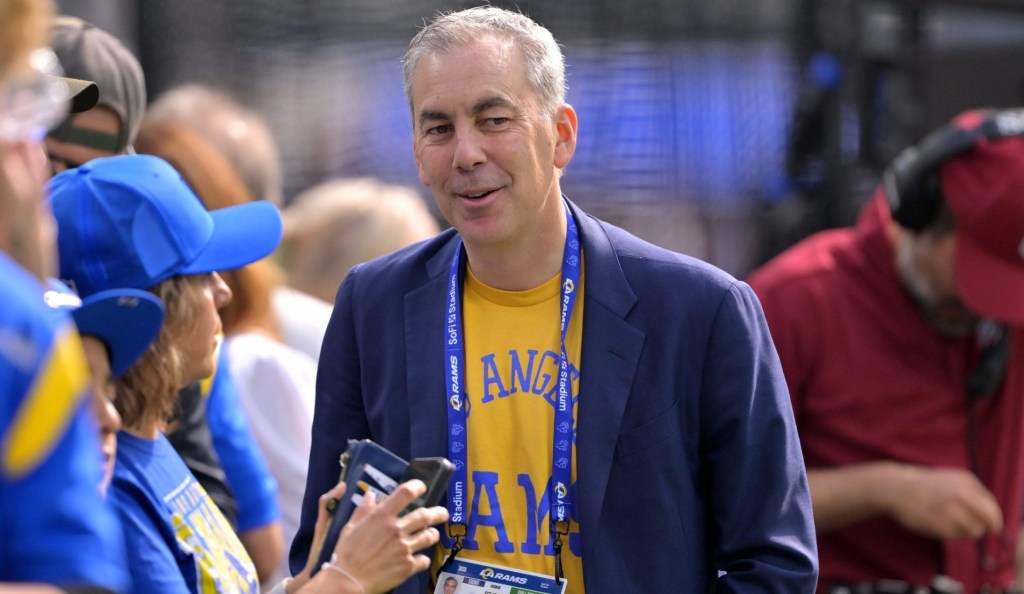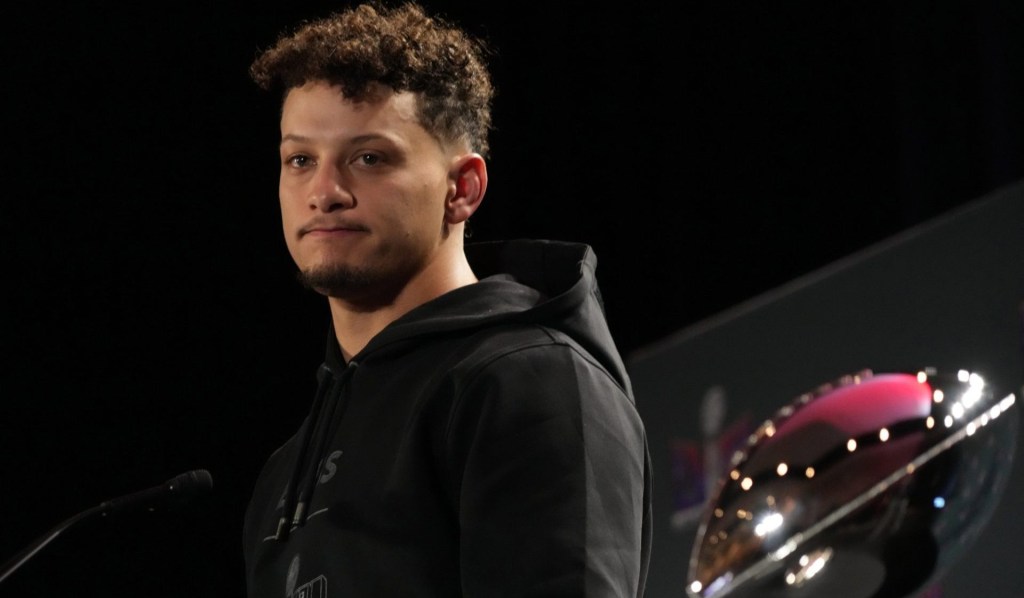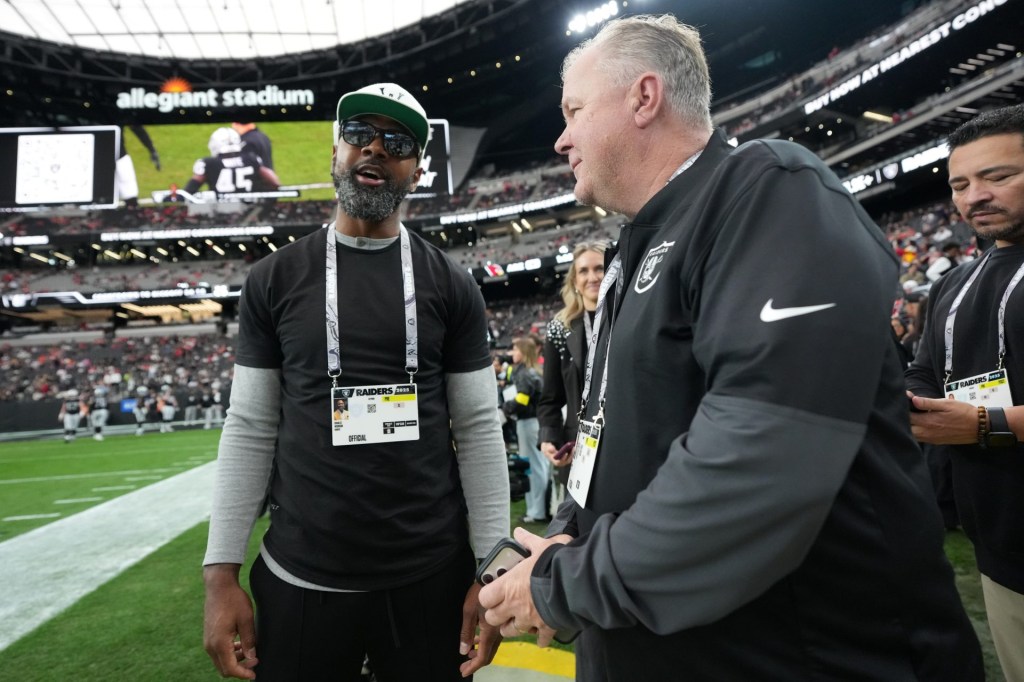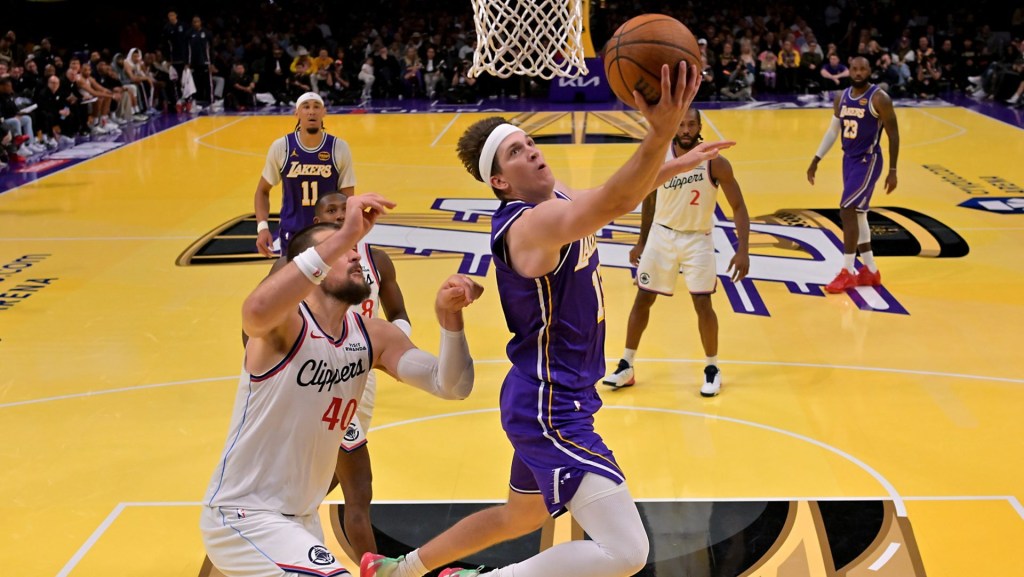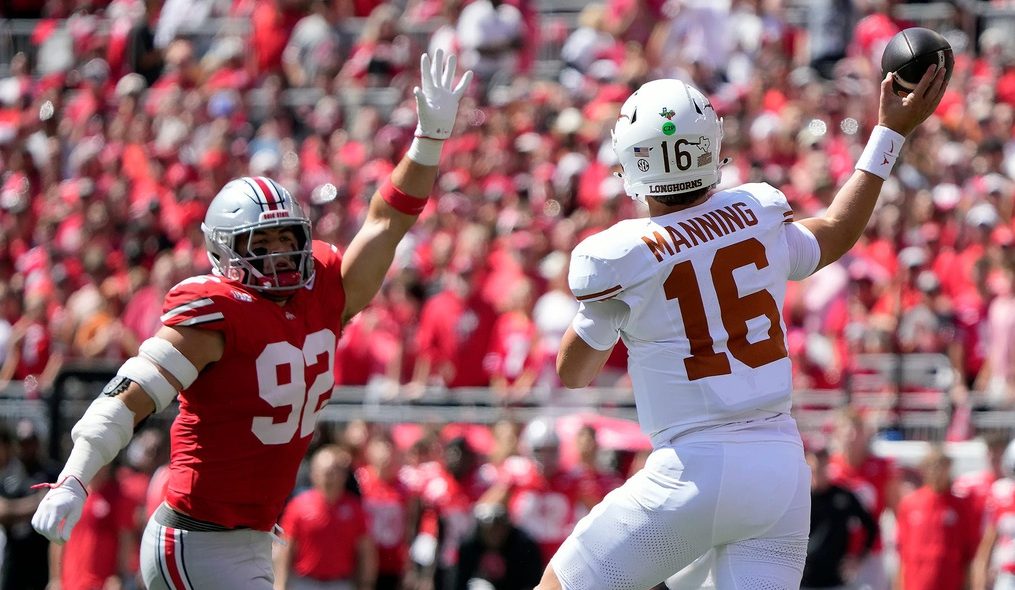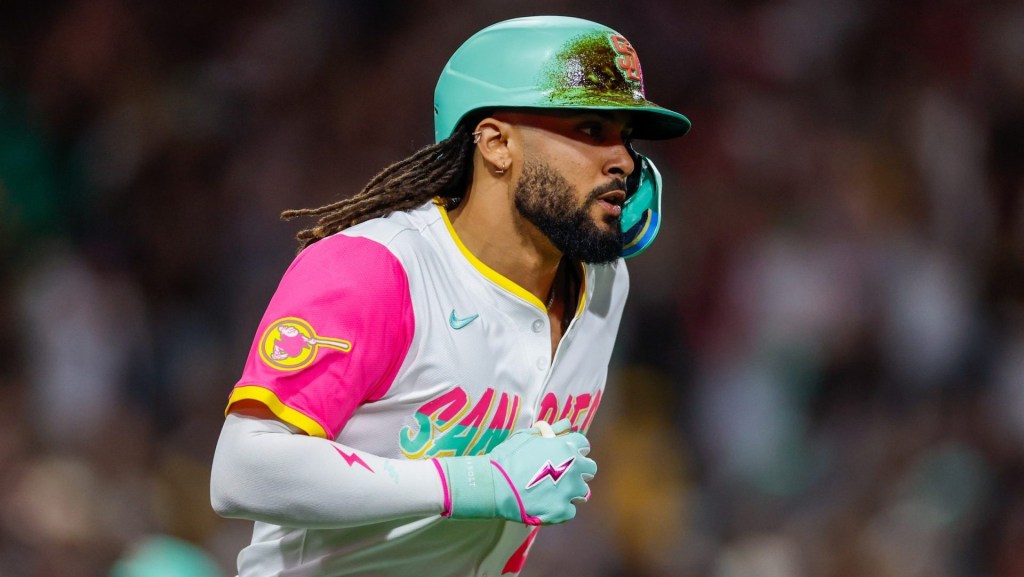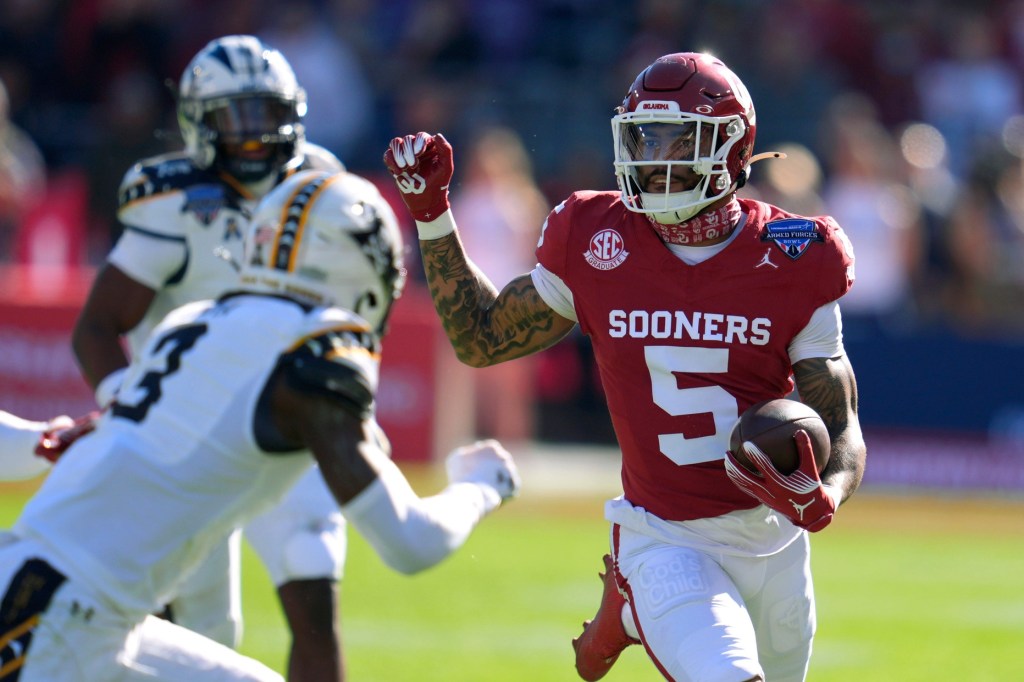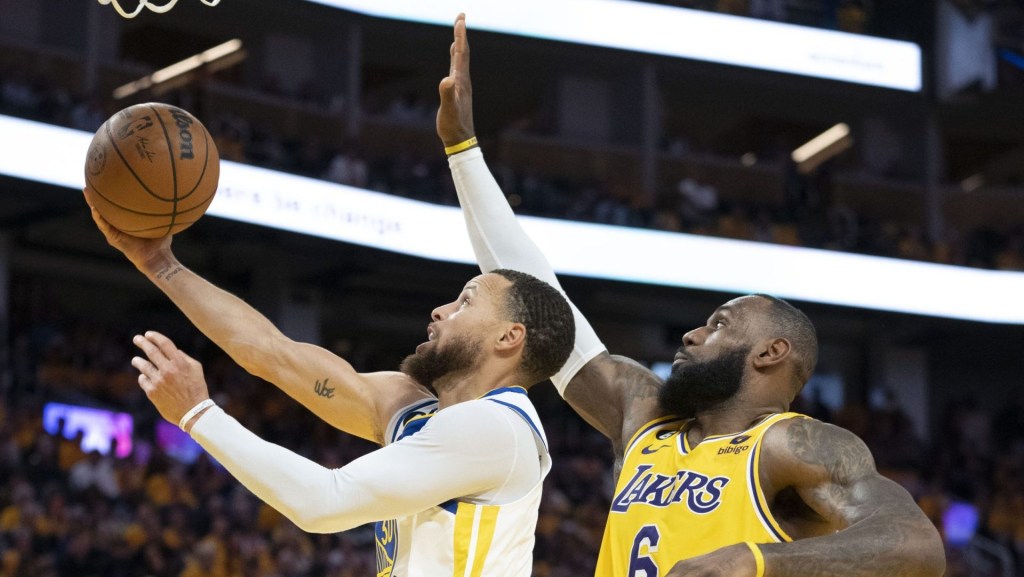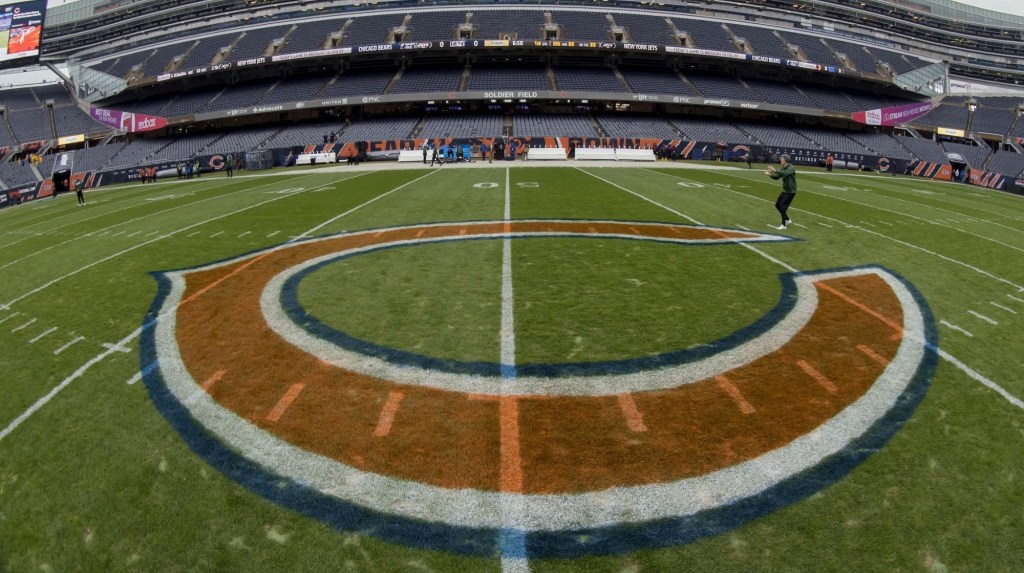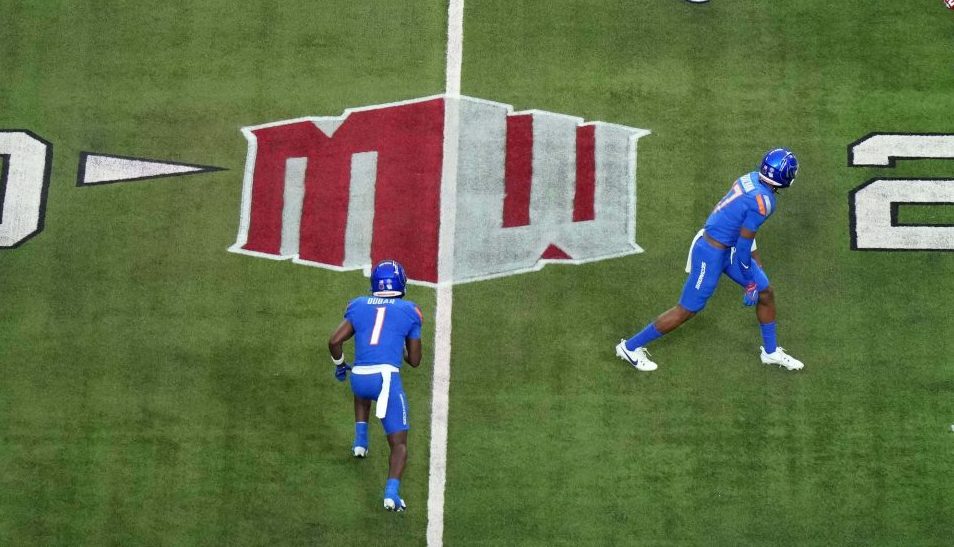This interview is presented to you by the University of Nebraska — Lincoln Master of Arts in Business with a Specialization in Intercollegiate Athletics Administration
By: Joe Londergan, @joehio_

We live in an interesting time for journalism. With a constant flow of information directed at us, it can be difficult to sift through all of it, be truly well informed and convey that to an audience. A great example of someone who does this well is the highly intelligent Benjamin Allbright. He graciously took the time to chat with Front Office Sports about his academic background, staying on top of breaking news around the National Football League and balance in sports journalism.
Allbright is a graduate of the University of Arkansas. Despite a successful career as a journalist covering the NFL for Bleacher Report and now CBS Sports, none of his multiple bachelor’s degrees are in journalism. He instead achieved degrees in English Literature, United States History and Statistics. This, however, served as a benefit to Allbright’s writing career and he advises young journalists to follow a similar path.
“Get a degree in anything other than journalism. Make that your minor. Try to make your major something related to the subject matter that you want to cover. There are a lot of people who have journalism degrees that like sports and understand journalism, but don’t understand the things that they’re covering. Get a varied world experience. Whatever you consider yourself to be, whatever you label yourself as, whatever you classify or quantify yourself as, find a way to experience it from the other side so that you don’t just understand one point of view, but the entire spectrum. That way, you can more competently speak on it”
Benjamin’s interest in intellectual pursuits started at a young age. This is partially a result of his upbringing in a family that valued being involved in American politics.
“I enjoy politics. I came up in a family that was heavily invested in political things all across the spectrum. I myself have worked on a couple of national presidential campaigns. It’s kind of a hobby of mine, government. Outside of sports, it’s probably my largest thing. I also have a miniature obsession with pop culture. I guess I had kind of a different upbringing. We didn’t own a television until I was about 12 or 13 years old, kind of on purpose. So I missed out on a lot of pop culture and I might be overcompensating for that now in terms of what I consume with a television.”
In an age where most of us are consuming electronic media for an increasingly large portion of the day, a childhood without a television provided Allbright with a unique perspective on the world.
“I think when you look at people who are all consuming the same information all the time, they tend to think the same way all the time. I think it was good, I think it taught me to think independently. I think that’s partially because I wasn’t consuming the same information as everyone else all the time. I think that portion of it is certainly a positive. The negative is it may have stunted me a little socially. I might be a little awkward in social conversations because I didn’t have the same information every one else did. It’s a give and take, but overall, I think it is a positive thing.”
During his days as an NFL scout and running his own company in NFL Draft Media, Allbright began growing his professional football network. Surprisingly, the contacts that proved most beneficial were not team representatives, but agents and player representatives.
“Keeping those other contacts is great, but people working for teams tend to, I don’t want to say have a tighter lid on information, but I guess they do try to keep some things under wraps because they don’t want to put their jobs in jeopardy. Once you’re out of the league, you’re kind of out. Since nobody wants to lose their job, it becomes tough to get information that way. So I tend to get more information from agents than any other place.”
Additionally, covering a league like the NFL, especially in the offseason, one of the crucial things to keep track of and report on is the player transitions that happen through free agency and trades. This is where these contacts with agents become especially crucial.
“We’re willing to trade information. We’ll get information from one guy that wants to hype up his client, wants to say a couple things. You take that information and you move on to the next agent who has a little bit of information, you do that and trade the information. It goes back and forth. Agents can use that information to gauge the market for contracts or where teams are going to go in different directions, things like that. In the end, my job becomes an information broker in a sense. I have something they want to know, they have something I want to know, so we trade.”
Currently, you can hear Allbright on 1340 AM and 104.7 FM Mile High Sports Radio in the Denver/Boulder, CO area. On his program he covers a myriad of football topics from a perspective that differs slightly from most sports talk hosts in local markets.
“I try to keep it national. Now the station that I’m on here in Denver is geared toward local. But I try to keep a national perspective on it. Now I’m not from Denver, so I think it would be disingenuous of me if I solely covered the local stuff and tried to pretend that I had a local perspective on it. I moved around a lot, I have a national perspective, so I try to play to that. I have what’s been called a bizarre obsession with honesty and I try to make sure that I’m always keeping it honest and credible so that people don’t have any reason to ever think that I wouldn’t.”
Allbright takes his notion of honesty and professional authenticity quite seriously. This makes it all the more difficult when he becomes expected to maintain positivity amid situations with teams or players that may not necessarily call for it.
“The most frustrating aspect (of the job) is the expectation of PR. The expectation from teams that you are always going to be positive, and when you’re not, they can threaten you with access. So leveraging that access in order to maintain a positive spin on stories is definitely frustrating. It’s the ugly secret. A lot of people don’t understand how that works. People talk about a guy being a homer in paper or on the radio and sometimes you have to be or the team will sometimes revoke your access or restrict it.”
This same kind of expectation can often come from fans of teams in the local market that desire their coverage to be a type of “de facto PR,” as Allbright calls it. However, the general public sometimes needs a reminder of the importance of journalistic neutrality and the most important thing is to understand the facts of a story and how those facts produce a certain outcome.
“My job is to be a conduit to information. The players are the stars, I’m just the guy telling the story. So I’m going to give it to you honestly whether it’s good news or bad news and I try to make sure that there is some balance to that. I disagree with the notion that there needs to be balance in journalism, but this is sports journalism so it’s a little different. The idea that there needs to be balance in journalism, I think, is a ridiculous notion. If you’re doing a story about a kid that got molested, you’re not going to give an equal amount of air time or print space to the person that committed that act on the kid, are you? That would be stupid. You have to talk about the experiences that the other person went through and the grief and the trauma. You’re going to tell the victim’s side of the story. You’re not going to tell the story of the aggressor because that’s utterly ridiculous.
I think the concept of balance in a story, in the larger scheme of things, is overwrought. But in sports journalism, it’s a little different because there’s not good guys and bad guys. A good example would be contract negotiations with Von Miller. You do want to provide balance with that because there are two different perspectives. You have an owner and a general manager who are trying to get the max amount of value for their dollar and you’ve got a player who is trying to capitalize on the maximum amount of his market worth. So you want to provide balance in a situation like that.”
While discussing this subject, Allbright was also honest about learning experiences where his honesty and tenacity for the truth have led to less than ideal circumstances.
“Early on, when I started out doing this, I wasn’t afraid to go after anybody. I kind of did in a lot of cases. Now, getting to the point where you make a little bit of a name for yourself, you burn some professional bridges doing that. Guys that can open doors for you that you went after because you thought you could do it better than they did or had some information that was more correct than theirs or whatever else. Down the line, that stuff can come back to bite you and it has a couple of times for me. I never want to become the guy who becomes afraid to criticize. At the same time, those youthful moments where you’re calling somebody out, ten years later, nobody remembers that you called somebody out, they just remember that you were kind of an a-hole.”
Everybody is human and even the best can make mistakes. In a business where relationships are so vital, it’s fixing these mistakes and attempting to nurture these relationships that becomes the next step when mistakes are eventually made.
“With the players, you just try to approach them and say that you got some bad info. For example, Evan Mathis, when he was with the Eagles, and then no longer with the Eagles (he eventually signed with the Broncos and is currently with the Arizona Cardinals) and looking around at other teams, I got some information that was bad. I reported that three teams were interested in him. Two of them were, one of them wasn’t, and I put the one that wasn’t in the lead. It was just bad information. I ended up kind of making him a little angry. So talking to him later after he signed, I tried to smooth it out. We sort of smoothed it over, but there was always a lingering distrust there because of that. You have to be careful with that. Now with fellow journalists and things like that, you do the best you can. ‘Aw I’m sorry about that, let me get you a beer’ or ‘I’ll give you a head start on some information I got’. That kind of thing.”
Despite some of the frustrations that can come from covering the nation’s most popular sport. Allbright thoroughly enjoys his job. It has allowed him some amazing experiences from attending Super Bowls and NCAA championships, to meeting some of his favorite players. Above all, he loves being able to tell those stories from his perspective backstage, so to speak, with the teams.
“Honestly, the coolest experience for me is peeking behind the curtain. Fans as a whole, I’ve noticed, have a certain perception about the way things are and they lose the human element of it. I think getting behind the curtain and getting to see the human element of sport has been something that’s been singularly interesting and phenomenal. It gives you a different perspective on things. I don’t think that the average fan gets that. I feel there’s a regret there that they don’t get to see that.”
Front Office Sports thanks Benjamin Allbright for his time, his honesty and his insight. He left this piece of parting wisdom on achieving personal success.
“Find a goal you’re comfortable with. Then set a new one 10 percent beyond it. That way you are always pushing yourself. You never want to get in to a sense where you’re mailing it in. You never want to get to a point where you’re just comfortable with adequacy. Strive for things that are attainable, but that you’ll really have to work to get them.”
Follow Benjamin on Twitter here!

This interview was presented to you by the University of Nebraska — Lincoln Master of Arts in Business with a Specialization in Intercollegiate Athletics Administration

